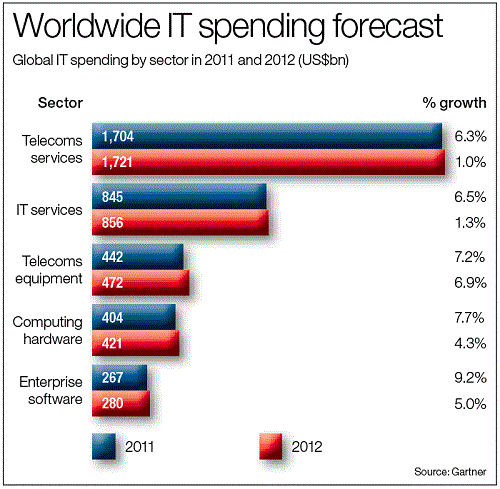By Ken Mercer
Many businesses have little or no idea of what they currently have in their IT arsenal and this can result in significant and unnecessary spending. So, “How can I save my customers money on the things they don’t know they are paying for in addition to the things they want?” is a question agents should be asking themselves as they are trying to meet the technology needs of their business customers and strengthen their relationships.
Before your customer makes his next IT or telecom purchase, do the legwork to take stock of what he’s already got. By putting in the effort on the front end, you and your customer will often locate “undiscovered revenue” in the form of unused or underutilized assets that can be cashed in, cancelled, or consolidated.
Elusive Spending
Part of “knowing the entire customer” is knowing how many locations, lines, LANs, servers, and cell phones the prospect has. Unfortunately, tracking IT expenditure is not always an easy task, partly because the business itself may not be the best source for the most accurate numbers and answers.
You may be asking yourself how spending and use could get by a business’ IT department. The answer is by no fault of the IT staff and it’s actually quite common. That’s because telecom spending has taken more shapes than arguably ever before and by departments that don’t always report to IT. Multiple means of payment and processing truly complicate the fast-growing challenge.
Here are the three main challenges businesses face in tracking their IT expenses:
- Mobile Device Management. Many employees use their smartphones for work purposes, pay with company credit cards and use expense reports to be reimbursed for the expenses incurred. However, the IT department often doesn’t see these reports. The same holds true for smartphone apps, which carry monthly, auto-renewed charges that are small but add up quickly. Add in international phone service roaming charges for traveling workers and the unchecked bills can pile up fast.
- Personal IT Service Use. Employees often run up charges from their own use of items beyond phones. These typically include web portals, web services, and cloud options – all typically unbeknownst to the IT department as well.
- IT Spending Outside IT. I frequently learn of companies struggling to control telecom expenses that are being rung up not by individual employees, but by entire departments such as sales or marketing. Since these costs are not under the auspices of IT they are frequently unknown to the IT department and can come as an unpleasant surprise.
Show that you know
An agent lacking the specialized skills or resources to uncover all the IT expenses of his customer can partner with a telecom expense and asset management service provider to conduct an independent, comprehensive and telling audit. This can be used as an IT baseline upon which to build a 360-degree, cost-optimized technology strategy without hidden costs and security weak links. Companies such as Teligistics provide these valuable audits to help firms identify spending and IT assets.
The benefits of a telecom and asset audit speak for themselves:
- Consolidation Savings. Until your customers have a complete accounting of their telecom assets, they can’t consolidate and optimize them for maximum savings and performance. That’s exactly where the audit comes in. Agents need to know their entire customer, meaning what they have now, not just what they want to do going forward.
- Unused Resources. For decades telecom inventory audits have revealed that businesses are paying for communications and hardware resources that are not being used. Hard to believe, but still a reality. Simply decommissioning these lines and devices creates significant savings.
As an example, Teligistics offers an audit and inventory as-a-service package that delivers an average net savings of 40%.
The Bottom Line
There are big pluses for agents that know the complete needs of their customers and prospects. There’s often the opportunity to sell additional services beyond the latest shopping list of services they initially sought. In addition, clients may have a tech wish list that they can finally get to with the ‘found money’ from the asset and inventory audit.
By knowing your entire customer, you as an agent stand to win more than just loyalty, but also the coveted trusted and knowledgeable advisor status. That comes from demonstrating you are interested in your customer’s entire business and will search for savings and related opportunities in their current operations.
As vice president at TBI, Ken Mercer oversees all sales and operations within the organization.










